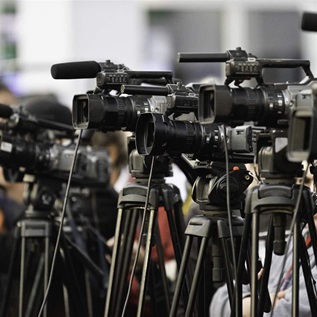Research Details Political Activity of Election Companies
Washington, DC- Electionline.org today announced the release of the first nonpartisan and non-advocacy look at the campaign contributions and lobbying activities of the largest producers of voting systems.
The report found that voting machine manufacturers have been mostly pragmatic in their political activities, giving money to each party and largely staying out of campaigns in key states considering the purchase of their wares--with two significant exceptions.
Early funding efforts focused on passing an initiative in support of a California bond to fund the local purchase of e-voting machines. Similarly, executives from Ohio-based Diebold Inc. gave generously to national and state Republican candidates.
The report also found, however, that manufacturers have not made significant campaign contributions in states such as Florida, Georgia and Maryland where lucrative contracts were rewarded in 2001 and 2002. Research also indicated no significant home-field advantage for companies seeking contracts with their states or local governments.
"With the election approaching, there has been some concern about how active these companies are, and important questions of whether they should be politically active at all," said Doug Chapin, director of electionline.org. "This report finds that compared with other industries that seek government contracts, the political contributions have been minimal. And with Diebold Election Systems' recent decision to limit corporate political activity, it should decrease even more."
"Some experts we interviewed said that the companies should disengage themselves from the partisan campaign aspects of the election process," Chapin said. "The industry has said it does not need to sacrifice the constitutional rights of its executives and employees because of the field in which they are employed."
Since 2001, the major election machine manufacturers--Diebold, Election Systems & Software, Sequoia Voting Systems and Hart InterCivic--have combined to contribute just over $650,000 to candidates, political parties or, public initiative campaigns. The largest share--$411,320 from 2001 to 2003--came from Diebold, given to Republican candidates and party coffers.
The report noted Diebold and its board members gave mostly to Ohio candidates and office holders, and President George W. Bush. The report notes that Diebold, unlike other election system companies, generates far more revenue from other segments, including banking. But it raised eyebrows when CEO Walden O'Dell vowed in a fundraising letter last year to "deliver" Ohio's electoral votes to Bush.
The remaining three companies gave more to Democrats over the same period--$45,550 compared to just under $30,000 to Republicans.
Electionline.org, a project of the University of Richmond sponsored by The Pew Charitable Trusts, is the nation's only nonpartisan, non-advocacy website providing up-to-the-minute news and analysis on election reform.
Pew is no longer active in this line of work, but for more information, please visit electionline.org.











